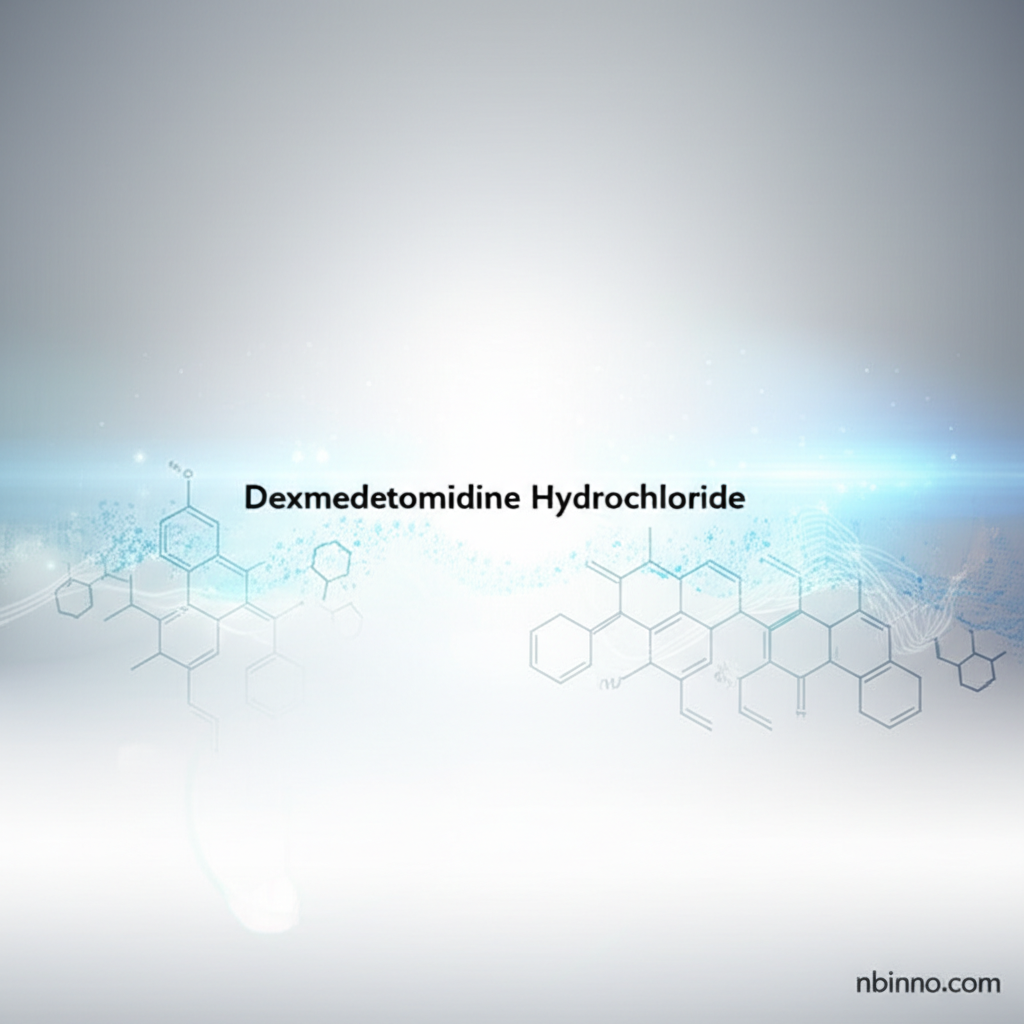Understanding Dexmedetomidine Hydrochloride: Properties, Applications, and Safety
Discover the comprehensive profile of Dexmedetomidine Hydrochloride, a key sedative agent in modern medicine.
Get a Quote & SampleKey Features of Dexmedetomidine Hydrochloride

Dexmedetomidine Hydrochloride
This advanced pharmaceutical ingredient, Dexmedetomidine Hydrochloride, is recognized for its powerful alpha-2 adrenergic agonist properties, offering a unique combination of sedation, anxiolysis, and analgesic-sparing effects. Its selective action on alpha-2 receptors leads to sedation that closely mimics natural sleep, a critical advantage as it allows patients to remain easily rousable and cooperative, a stark contrast to many other sedatives.
- Leverage the unique mechanism of action of Dexmedetomidine Hydrochloride for effective sedation without significant respiratory depression.
- Explore its extensive clinical applications, from intensive care unit (ICU) sedation to procedural sedation, by understanding its properties.
- Learn about the essential safety considerations, including potential side effects and drug interactions, crucial for its appropriate use.
- Gain insights into the pharmacokinetic and pharmacodynamic profiles that govern its efficacy and duration of action.
Advantages of Dexmedetomidine Hydrochloride
Preserves Respiratory Function
One of the most significant advantages of dexmedetomidine hydrochloride is its minimal impact on respiratory function, making it a preferred choice where maintaining spontaneous breathing is paramount.
Facilitates Patient Cooperation
The characteristic ‘rousable sedation’ allows patients to remain interactive and responsive to commands, which is invaluable for procedures requiring patient cooperation. This is a key benefit for using alpha-2 adrenergic agonist sedation.
Broad Clinical Utility
From ICU patient management to facilitating medical procedures, its versatility makes it a cornerstone in various healthcare settings, as detailed in studies on dexmedetomidine for pediatric sedation.
Key Applications
Intensive Care Unit (ICU) Sedation
Dexmedetomidine hydrochloride is widely used for sedating mechanically ventilated patients in the ICU, providing continuous and effective sedation with minimal respiratory compromise. Understanding dexmedetomidine hydrochloride uses is vital for critical care professionals.
Procedural Sedation
It serves as an excellent agent for procedural sedation, offering a balance of efficacy and patient comfort, making procedures less stressful and more manageable.
Agitation and Withdrawal Management
Its calming properties make it beneficial in managing agitation and withdrawal symptoms, contributing to patient comfort and stability during treatment.
Adjunct to Local Analgesia
Dexmedetomidine hydrochloride can enhance the effects of local anesthetics, prolonging analgesia and improving patient outcomes in various pain management scenarios.
